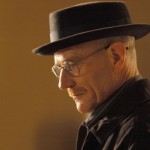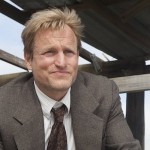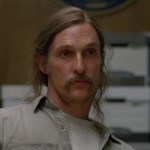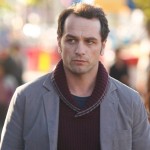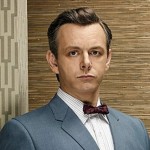Don’t get me wrong, I like dramatic television series as much as the next guy, but hot damn did the six gentlemen below do some heavy lifting to earn their hard-earned spots. From crystal meth kingpin to pioneering sex researcher, from philanthropic billionaire genius to clandestine Soviet spy, and from one messed up homicide detective to another slightly less messed up homicide detective, these guys brought their A games.
When a lead performer really carries a show, his (or her) presence on it becomes a defining mark of that series’ identity. Could you imagine any other living human being playing Breaking Bad‘s Walter White? Or some other stringy-haired jamoke depicting True Detective‘s Rust Cohle? Of course you can’t because I’m right. But more than that, we correlate a show’s overall greatness with the singular greatness of the central performance anchoring that show, and that’s exactly what we have on display here.
Without further delay, here are the men most deserving of hearing their names called for Best Lead Actor in a Drama Series.
Bryan Cranston, Michael Emerson,
Breaking Bad Person of Interest
Woody Harrelson, Matthew McConaughey,
True Detective True Detective
Matthew Rhys, Michael Sheen,
The Americans Masters of Sex
Honorable Mentions: Kevin Spacey, House of Cards; Hugh Dancy, Hannibal; Jim Caviezel, Person of Interest
“Show your work…”
Matthew Rhys’s chameleonic turn as Phillip Jennings/Clark/long-haired hippy in FX’s phenomenal series The Americans positively scintillates. In addition to the physical presence he brings to a scene–whether engaged in a fire-fight or approaching an asset–Rhys does a masterful job depicting the emotional tole his career as a Soviet spy living in America has taken on him. Feeling trapped between two worlds, Rhys can take his character from calm, supportive father to a terrifying rage monster (note to self: don’t mention church around him, right Paige?) sometimes within a single scene. While his precise handle on the range of emotions that might define a spy’s life impresses, it’s something far more subtle that makes his performance so miraculous: even when he must adopt a disguise and persona in order to complete a mission, there still lurks the uncertainty and ambivalence that typifies Phillip’s emotional struggle. In order words, Rhys makes it very clear that it’s Phillip playing these other roles, not Rhys the actor. I’m not sure how this insanely talented actor manages to pull that high-wire balancing act off, but it catapults his uniformly outstanding performance into the upper echelon.
Time is a flat circle, and no matter where you stand on its continuum, you will not find a more electric partnership anywhere on television than the one between Marty and Rust in HBO’s brilliant crime series True Detective. With the McConnaisance heading into stage two, Matthew McConaughey seems all but guaranteed to win an Emmy for his work as Rust Cohle. And trust me, the inevitable accolade is well-deserved–his performance is a revelation, imbuing his enigmatic character with shades of hubris, arrogance, sadness, weariness, hope and cynicism in equal doses. I can’t remember the last time a character’s redemption has felt so authentic, earned, and profoundly moving as that which Rust found. Plus, the man does a great parlor trick with beer can origami! #YouAskMeTheMcConaugheysWinning Despite the superlatives we heap onto McConaughey, it it no way detracts from Woody Harrelson’s work as Marty. As this dark and winding season progressed, Marty became more difficult to like and even more difficult to understand, as his self-destructive path ultimately destroyed the relationships closest to him. Harrelson didn’t shy away from the depths of rage that motivated Marty, and when he cut loose, the results were truly explosive. Need evidence? The scene of him resorting to physical violence against his daughter after she returns home from a promiscuous sexual escapade perfectly captures Marty’s impotent rage. It’s a humdinger of a performance and a reminder that we couldn’t have Rust without Marty. Do you think the Emmy could just call it a tie already?
Michael Sheen’s depiction of sex pioneer Dr. William Masters, in Showtime’s preciously titled Masters of Sex, is one of the most engaging feats of acting on television. His William Masters becomes a man of repressed urges, soaring ego, and insufferable arrogance, and Sheen does little to temper those uglier sides of his personality because he understands that they also illuminate the uncompromising depth of his genius. Sheen, however, also allows us the occasional glimpses beneath his veneer of self-righteous pomposity; his “research-based” relationship with Virginia Johnson reveals a tenderness and vulnerability that Masters has snuffed out of his own bloodless marriage. Sheen can accomplish a great deal with a contemptuous look or a truncated cry of “Virg–Jane!” to convey precisely what motivates Masters, and this gift–more than the words on the page–forces us to root for a man he doesn’t try to get us to like, simply to understand.
Michael Emerson’s Harold Finch, a reclusive billionaire with a helluva Machine, gives the world of Person of Interest its much-needed moral compass. Beset on all sides by those who seek to use the Machine to satiate the most morally corrupt facets of human nature, Harold remains the devoted philanthropist undeterred by the likes of Decima Technologies and Samaritan. You might argue that such single-mindedness would create a character (and performance) entirely myopic, but to suggest that would undercut the simplistic depth of Emerson’s work. Even when bound to his sense of moral duty, Finch finds new ways to surprise us, unlocks new possibilities for selflessness and sacrifice. You see, Emerson embodies Finch with character details (the limp, the almost robotic voice, the tech savvy) that specify his character, and the more specific he becomes, the more universally symbolic he becomes of the need for self-actualized goodness in a world determined to wipe it out. Great stuff.
Over the years, the Emmys have garnered a reputation for awarding the same winner for the same performance several years in a row, including the likes of The West Wing’s Allison Janey, The Sopranos‘ late and greatly missed James Gandolfini, and Frasier‘s David Hyde Pierce. As much as I adore all three of them (and the other repeat winners, like Aaron Paul, not listed here), at a certain point enough is enough. I mean, how different was, say, Pierce’s Niles Crane from one year to the next? I’d hazard a guess and say not different at all. What I’m trying to say here is that I’m not a huge fan of the repeat winner, okay? I’m sorry I’m not sorry. But then along comes Bryan Cranston, who manages to take Walter White through so many iterations, so many transformations, that he seems as if he does give an entirely new performance each year. And this, Breaking Bad‘s final season, found Cranston digging deeper than ever before. One of the best pieces of acting to ever grace stage or screen, Bryan Cranston deserves the right to repeat his Emmy glory and make me look like a hypocritical such-and-such. I can take it. You’re welcome, Mr. Cranston.
That’s the end. Stay tuned next time for the penultimate Dream Emmy Ballot: Best Lead Actress in a Drama!
